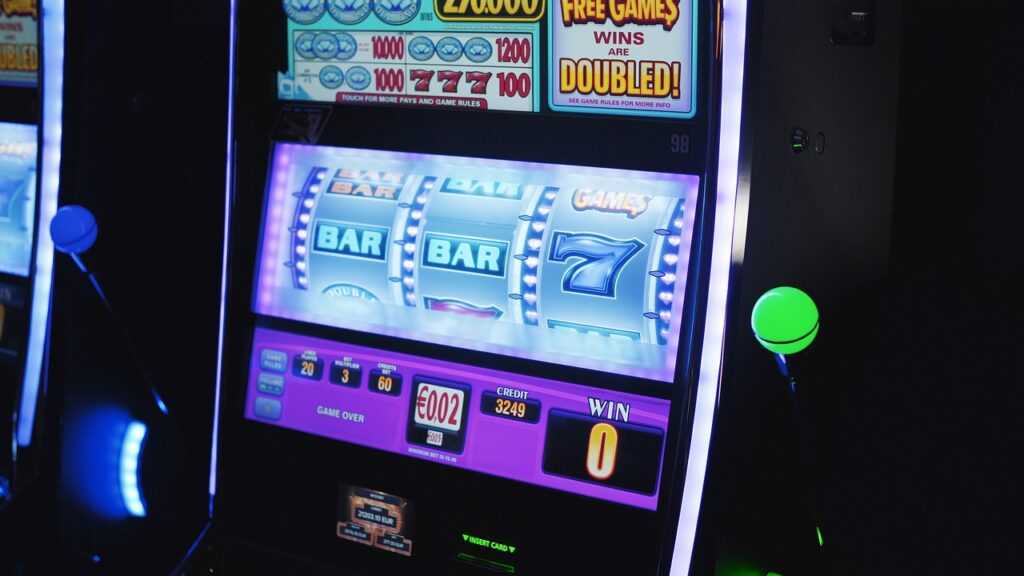Understanding Slot Machines
Slot machines operate based on random number generators (RNGs), ensuring each spin’s outcome is unpredictable. RNGs continually produce random numbers, determining the symbols displayed when the reels stop. Myths suggesting machines remember previous spins or that odds change over time are unfounded. Each spin remains independent of past results.
Paylines, another key feature, determine winning combinations based on symbol placement. Players often misunderstand paylines’ impact on a slot machine’s dynamics. The more paylines, the higher the chance of landing a winning combination, but this also increases the cost per spin. Therefore, understanding the relationship between paylines and betting strategies is crucial.
Slot machines’ payout percentages, or RTP (Return to Player), indicate the average amount a game returns to players over time. For instance, a machine with a 95% RTP returns $95 for every $100 wagered in the long run. Many players misconstrue RTP as a guarantee of immediate payouts. Instead, it reflects long-term statistical probability.
Bonus rounds, free spins, and progressive jackpots add layers of complexity. Believing that bonus features will lead to significant wins quickly can mislead players. In reality, these features are programmed into the game mechanics, maintaining the house edge and enhancing entertainment without guaranteeing payouts.
Slots are governed by strict regulations to ensure fairness and compliance. Understanding that personal strategy doesn’t influence outcomes helps players make informed choices and manage expectations. These insights reveal the true nature of slots beyond common myths.
Common Slot Strategies Debunked
Certain slot strategies don’t deliver on their promises. I’ll focus on debunking popular myths that might mislead players.
The Myth of Hot and Cold Machines
Many believe machines alternate between “hot” (likely to pay out) and “cold” (unlikely to pay out) states, but this isn’t accurate. Slot machines operate with random number generators (RNGs), which ensure every spin’s outcome is independent and unpredictable. There’s no cycle of winning or losing phases. Relying on this myth could lead to misguided bets, as each spin has the same odds regardless of previous outcomes.
The Illusion of Timing Patterns
Some players think they can time their spins to hit jackpots, assuming certain hours or sequences influence results. However, the RNG’s function guarantees that winning is purely random and not affected by timing or patterns. Anticipating a machine’s payout based on time spent playing or spins played doesn’t change the odds. This misconception often results in players incorrectly adjusting their wagering style.
The Fallacy of Slot Clubs and Rewards

Slot club memberships and rewards programs lure players by suggesting that loyalty translates into better winning chances. While these programs offer perks like free play or meals, they don’t affect game outcomes. Rewards are incentives to keep playing, not a strategy for success. Although these clubs enhance the gaming experience, expecting them to alter luck or payout odds is a fallacy.
The Mathematics Behind Slots
Understanding the math behind slots reveals why some strategies are ineffective. Slots rely heavily on mathematical principles to ensure fair and unpredictable results.
Random Number Generators Explained
Random Number Generators, or RNGs, are the backbone of slot machines. They ensure randomness by generating thousands of numbers every second, even when the machine isn’t in use. Each spin’s outcome links directly to one of these numbers, making each result independent of previous or future spins. An RNG guarantees that there’s no pattern to exploit, debunking myths about predicting outcomes.
House Edge and Its Impact
- The house edge refers to the mathematical advantage casinos have over players.
- Slots exhibit a predefined house edge, ensuring the casino profits over time.
- If a game has a 5% house edge, the casino anticipates retaining 5% of all wagers in the long run.
- While individual sessions can yield wins for players, the house edge ensures that, statistically, the casino prevails.
- Acknowledging this element debunks the belief that skill influences results over time, highlighting the importance of managing expectations.
Why Slot Myths Persist
Myths around slot machines continue because they’re fueled by psychological factors and media influence.
Psychological Drivers
The human mind finds patterns even in randomness. Players often believe they’re developing strategies based on these perceived patterns. The illusion of control boosts engagement; when players think they can influence outcomes, they feel more involved. Superstition also plays a role. For example, players might hold onto lucky charms, convinced these objects affect their success.
Influence of Popular Media
Movies and TV shows often dramatize casino wins, suggesting skill influences slot outcomes. For example, a character using a special move or technique to hit the jackpot skews public perception. These portrayals blur the line between reality and fiction, embedding myths in the minds of viewers. Media often neglects the role of chance, presenting slots as a strategic challenge rather than a game of luck.
Better Approaches to Playing Slots
Understanding effective ways to enjoy slot machines enhances the experience while aligning with realistic expectations.
Setting Realistic Expectations
Accepting the random nature of slots reshapes my perspective on potential outcomes. Every spin remains independent, with RNGs ensuring fairness and unpredictability. Acknowledge the house edge, as it signifies a built-in advantage for casinos that can’t be overcome by strategies. By recognizing these factors, I prepare myself for both winning and losing sessions without unrealistic hopes.
Focusing on Entertainment Value
Viewing slot machines as a source of entertainment, rather than a guaranteed way to win, transforms how I engage with the game. I concentrate on:
- enjoying bonus rounds
- engaging graphics
- captivating themes
to enrich my gaming experience. By setting limits on time and money spent, I maintain control over my play, ensuring that the enjoyment of the game remains the priority.








